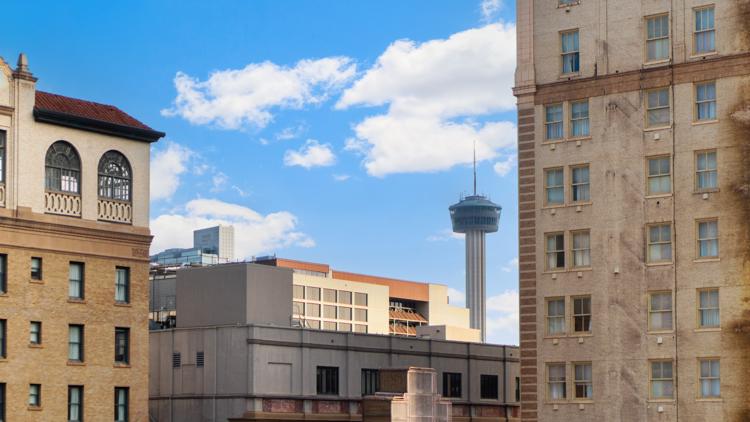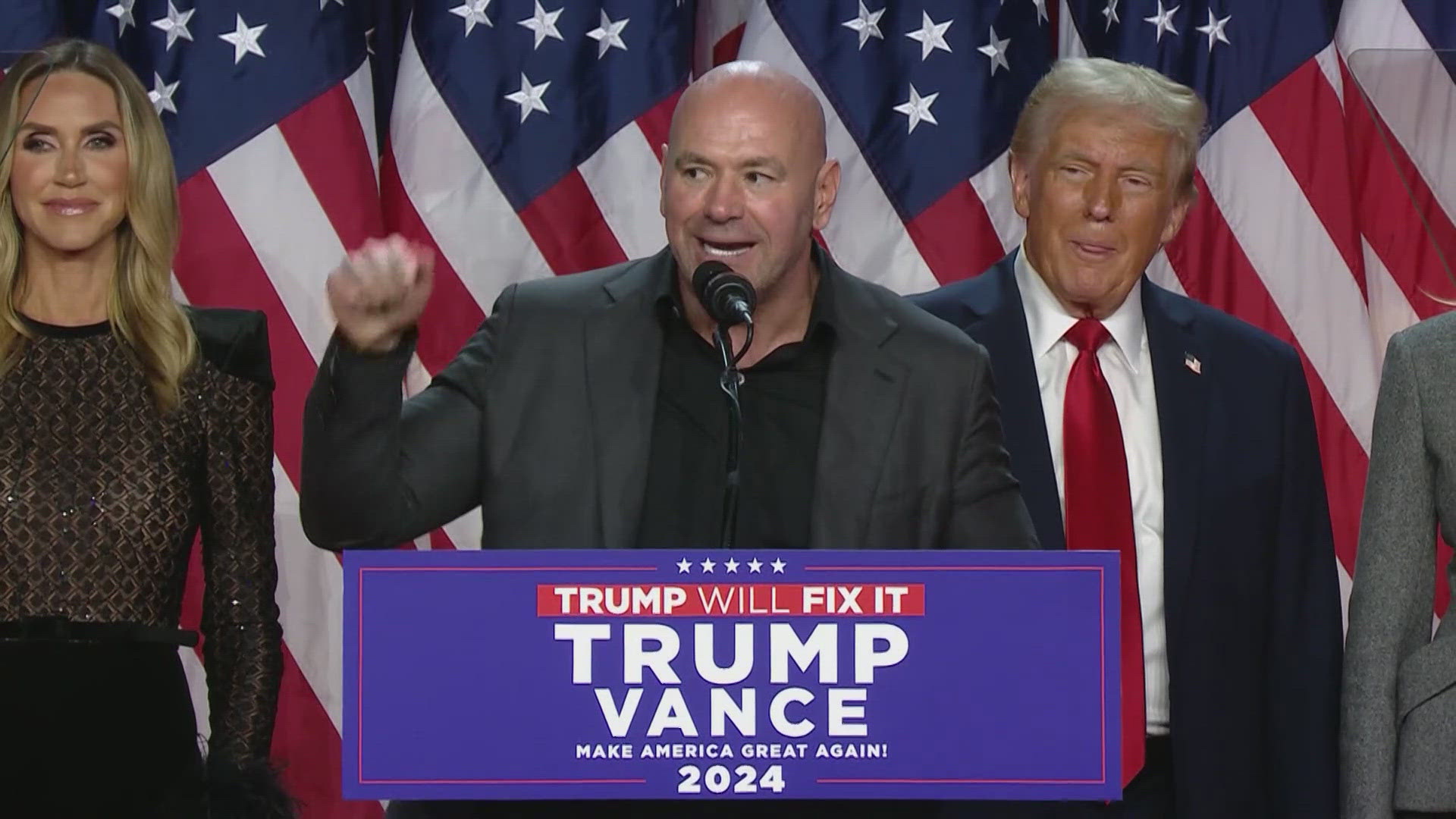SAN ANTONIO — San Antonio voters might be leaning towards approving salary raises for the mayor and City Council members in this fall's election, if the latest poll from UTSA researchers is any indication.
And it may come down to smart wording on the ballot proposition itself.
Last month's poll by the UTSA Center for Public Opinion Research showed less than 30% of respondents were in favor of approving raising City Council members' salaries to $70,200 (from $45,000), and the mayor's pay to $87,800 (from $58,000). A follow-up poll conducted this month that wrapped up just before the start of early voting, however, saw support shoot up to 51.6% among the 656 likely voters who were surveyed.
What happened in that amount of time that could explain the change in mood? Maybe nothing tangible at all.
UTSA, in an effort to gauge how much wording matters for voters, decided to put the exact ballot language for the charter amendment questions in its October poll. In September, UTSA went with descriptors "in line with how they were being reported in local news at the time," according to Bryan Gervais, director for the Center of Public Opinion Research.
In regards to Proposition E, impacting City Council pay, that means October respondents were asked if they were in favor of changing the San Antonio City Charter "to set and limit the compensation for City Council members and the mayor." The previous month, which is when 50.7% of respondents said they opposed Proposition E, UTSA's curated wording asked if they'd support changing the charter "to increase the baseline salaries for members of the City Council and the mayor."
"I think it's a fair assumption most voters don't realize the low salaries for the mayor and the council (members) relative to other cities," Gervais said. "So when they see 'set and limit the compensation,' what we believe is that voters think this means it's going to be reduced or limited to this, not that this represents a raise compared to what they're currently receiving."

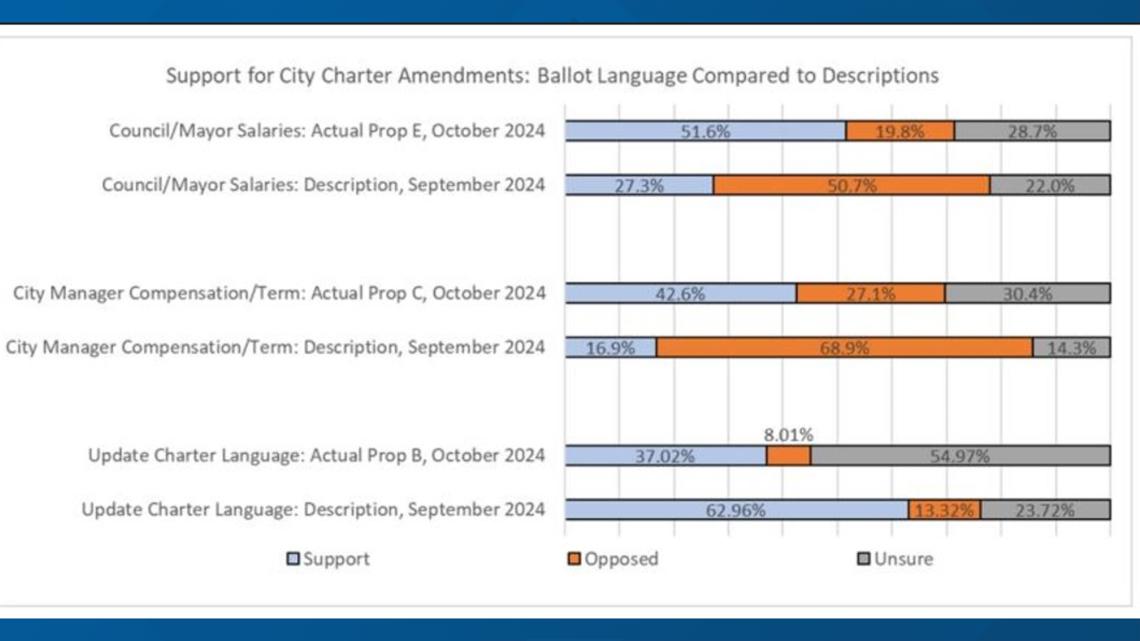
A similar effect was found in UTSA's September/October polling on Proposition C, which would give City Council the power to "set the full terms of the city manager's employment, including tenure and compensation." 42.6% were in support of that when surveyed this month, while 27.1% said they were opposed.
But UTSA's wording last month framed the question as "removing the caps" on city manager salary and how long they could serve. When presented with that wording, a paltry 16.9% were in favor of approving the proposition while a whopping 69% opposed it.
The city attorney's office finalizes the charter amendment language that goes on ballots.
The polling update on Proposition B, which UTSA summarized last month would "remove outdated terms and language in the charter," went in the opposite direction: Just 37% were in favor this month, compared to 63% in September. That's because the actual ballot language is less words than ambiguous-looking sections of the charter that could confuse voters at the polls—hence why 55% said they didn't know about their stance when surveyed this month.

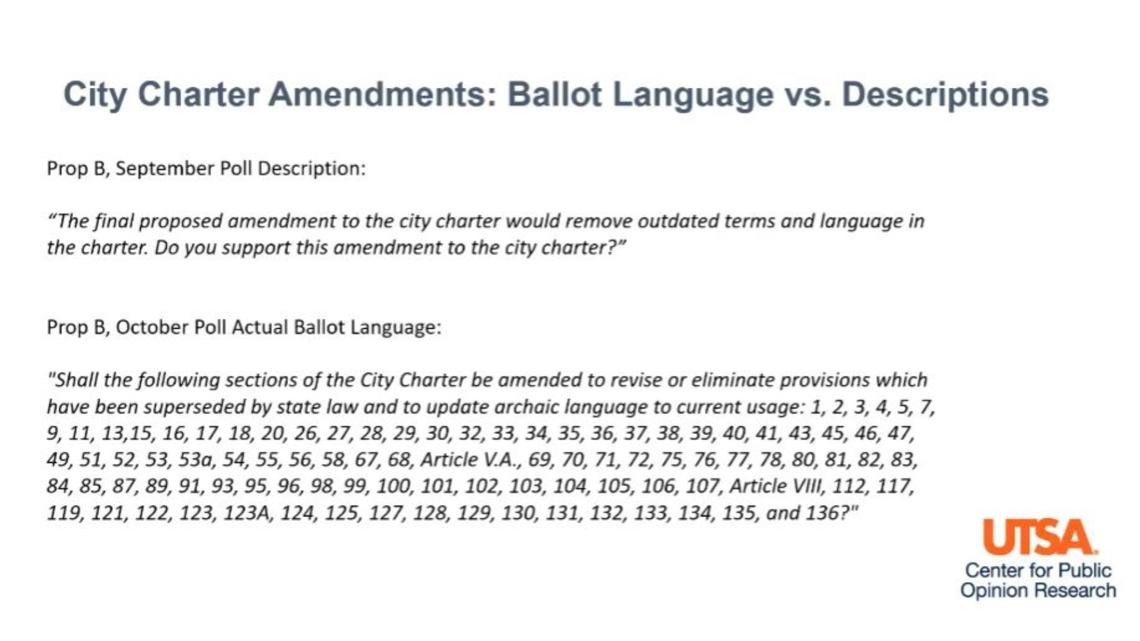
“That’s really because when you look at Prop B, it’s really just lines and lines and lines of particular sections of the city charter that would be updated," Gervais said.
The other three charter propositions – related to ethics reform, allowing city employees to participate in political activity, and modifying the lengths of City Council and mayoral terms – also saw comparatively little change from September to October.

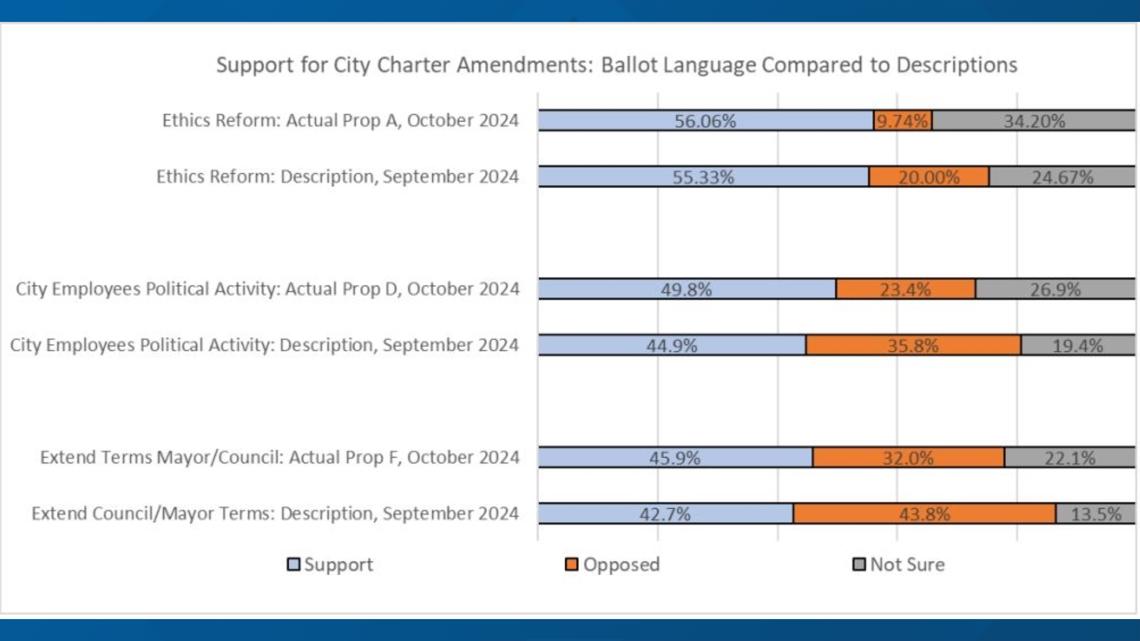
Most respondents weren't even aware of the proposed charter amendments. In October's poll, seven out of 10 respondents said they hadn't heard about them, which is down from September, when eight out of 10 were unaware.
The October poll was conducted from Oct. 15-20 and had a margin of error of 3.8%. The center focused on reaching habitual voters, while mixing in first-time voters and others with more scattered voting histories; only San Antonio residents were polled.
"We're trying to get our sample to look like the actual electorate," Gervais said.
How is San Antonio leaning in the presidential, U.S. Senate races?
While UTSA opted against polling the community on their thoughts about downtown sports stadiums for a second straight month, the center did find that Democratic candidates in two of the biggest races this year still lead their Republican opponents in firmly blue San Antonio.
Support for Kamala Harris, meanwhile, waned slightly this month. The share of respondents who said they planned to vote for her dipped from 53.5% in September – during a post-DNC moment of strong popularity – to 48.8% in October.
That amounted to the biggest shift among major candidates in the presidential and Senate races, which remained more or less stable in UTSA's poll. Gervais said that was unusual, but nonetheless in line with national polling.
“Typically in election seasons, we see more change down the stretch and there’s more fluctuation in polls, at least there has been in previous presidential elections," he said. "It’s been remarkably stable (this year)."

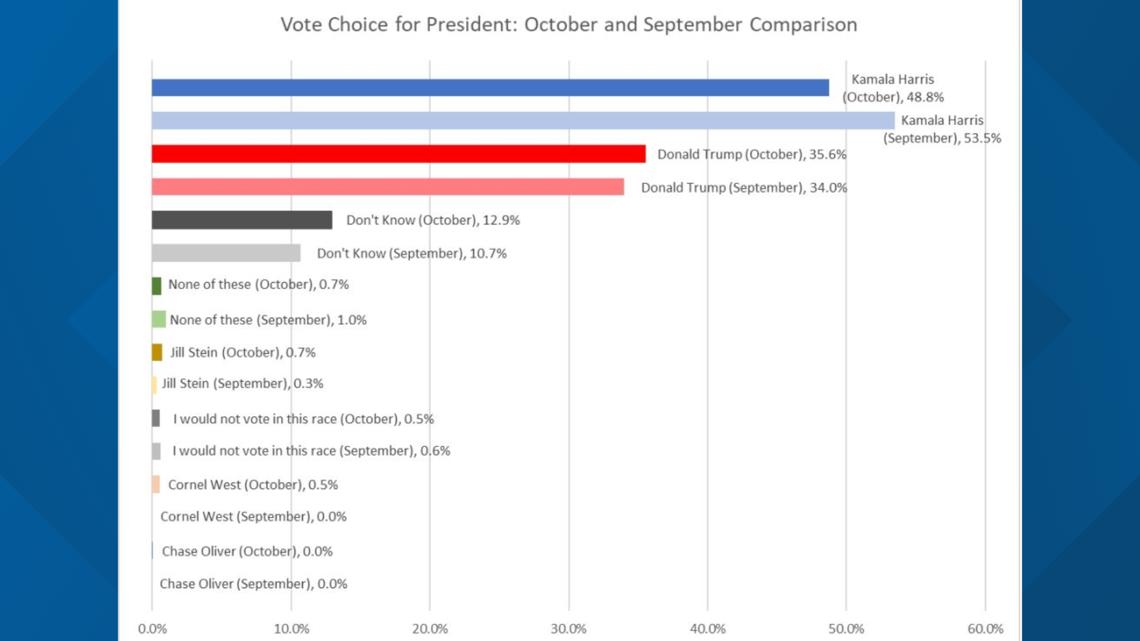

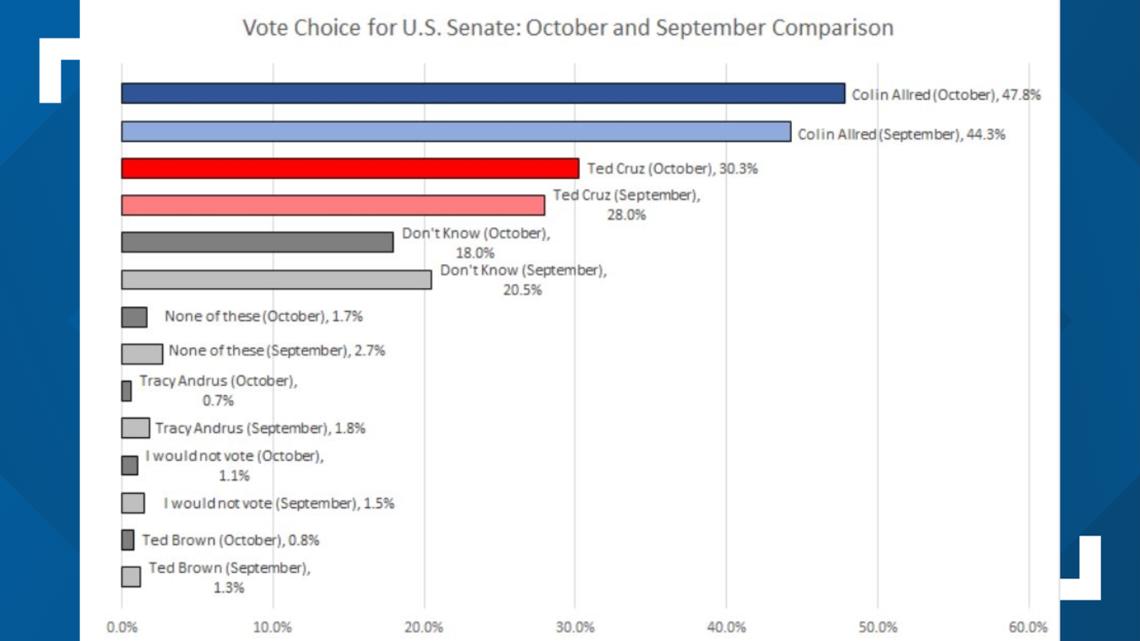
In regards to the San Antonio mayoral race, the biggest thing UTSA's October poll cemented is that it's still incredibly early. Voters won't decide on Mayor Ron Nirenberg's successor until next May (he will leave the seat after serving the maximum of eight years), and candidate filing doesn't officially open until January.
Still, for what it's worth, voters for a second month showed they're highest on John Courage, Manny Pelaez, Adriana Rocha Garcia and Beto Altamirano – in that order – in their campaigns' infancies.

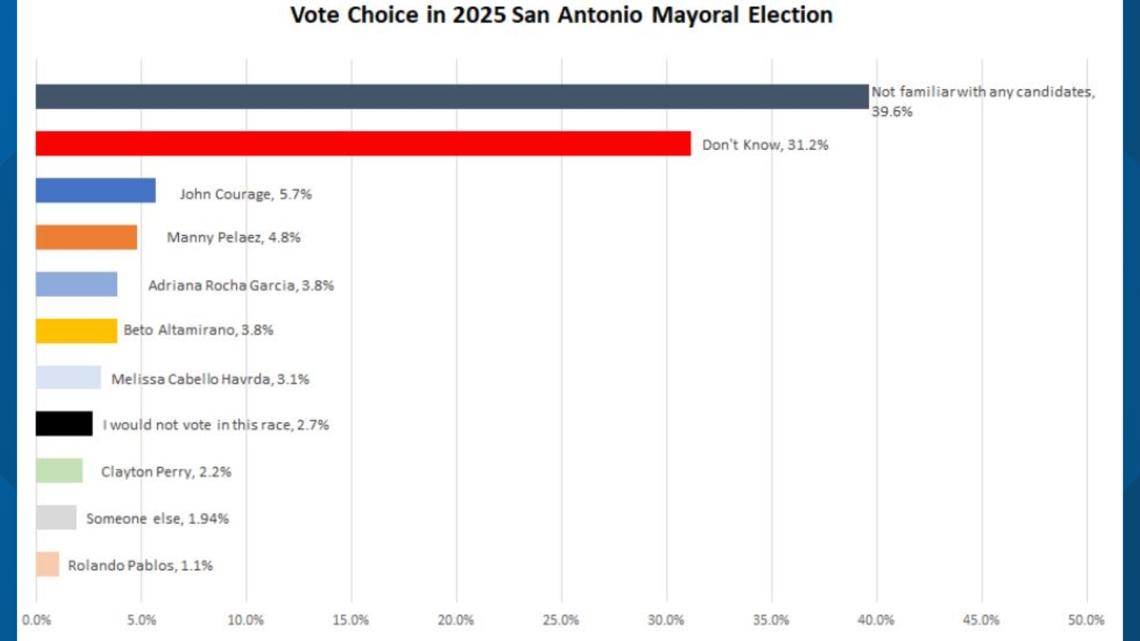
You can see the full results of UTSA's October poll here.


